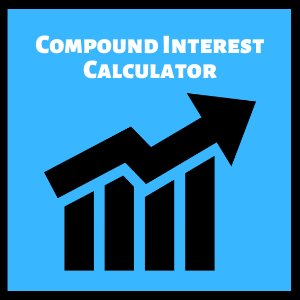Use this compound interest rate calculator to marvel at the power of compounding.
(Caution: as computing these figures can be complicated depending on what functions you use, results should only be taken as estimates.)
The Definition of Interest Rate
There are 2 points of views that illustrate the use of interest rates – from a borrower and a lender.
From a borrower’s point of view, the interest rate is charged by the lender for the use of an asset – usually money.
It’s the cost of borrowing, and is usually an annual percentage on the amount borrowed.
On the other hand, from the perspective of a lender (can be you too), you’re “lending” money to a company, and in return you’re given an interest rate which reflects your “profits”.
SIDE NOTE When was the last time you conducted thorough financial planning or reviewed your finances? In this day and age in Singapore, doing so will absolutely improve the quality of life for you and your loved ones. Here are 5 reasons why financial planning is so important.
What is Compound Interest
Compounding interest comes in when interest is calculated on both the principal amount and the accumulated interests from previous periods.
Some may call it “interest on interest”.
For example, you deposited $10,000 and was given an interest of 10% per year.
At the end of the first year, what you’ve accumulated in total would be $11,000 (10,000 + 0.1×10,000)
At the end of the second year, you’ve accumulated a total of $12,100 (11,000 + 0.1×11,000).
The compounding frequency need not always be annually either, it can be daily, monthly, etc. When it’s compounded at a higher frequency, the final value will be higher, when all else stays the same.
Simple Interest vs Compound Interest
In the calculation of simple interest, the interest given is merely a percentage on the initial principal.
For example in a fixed deposit of $10,000 that pays 1% per year, if it’s calculated on simple interest basis, the interest amounting to $100 would be paid out to you.
This would be very different if that amount of $100 can be reinvested back, and subsequent interest can be based on principal + interest. In that case, it would be on a compound interest basis.
DID YOU KNOW? According to a survey conducted by MoneySense, about 3 out of 10 Singapore residents aged 30 to 59 had not started planning for their future financial needs. This isn't surprising because personal finance can seem complicated and daunting. But really, there are only a few things that you should focus on. Learn how to significantly improve your personal finances with the 7-step "wedding cake" strategy today.
How to Calculate Compound Interest (Formula)
Calculating compound interest is not a simple task.
A variety of mathematical formulas come in.
If you use the calculator above, it’s able to calculate various functions including having the compounding frequency differing from the regular investment frequency.
The formula used in the calculator is derived from this:
Compound Interest Formula
Future Value = P*(1+r/n)^(n*t) + A*(((1+rate)^nper – 1)/rate)
Where:
rate = ((1+r/n)^(n/p))-1
nper = p*t
r = annual interest rate
n = number of compounding periods per year
p = number of payment periods per year
t = number of years
A = regular amount added at the end of each period
P = initial investment
If you wish to read further on the formulas which the calculator is derived from, you can take a look at this page.
Capitalise on the Power of Compounding
Compounding interest is often called the 8th wonder of the world (cheesy, I know).
But it does has its merits.
There are 3 factors that enhance this compounding effect:
- higher interest rate
- longer term
- higher compounding frequency
If you can improve on these factors, your final value will more significant.
The investment term (e.g till retirement) and the compounding frequency (annually) are usually fixed. And that makes the most factor to be: interest rate.
That’s why you’d want to maximise the amount of returns you can get from your savings/investments, so that it can compound more.
And choosing the right type of investment vehicle is within your control.
The Different Types of Interest Returns You Can Get in Singapore
Because of the reasons outlined above, you may want to get the highest returns possible.
Is it always the best option?
Not all the time.
There’s always a trade-off between returns and risk.
Before we talk about it, here are some places where you can put your money in:
- Savings accounts
- Fixed deposits
- Singapore Savings Bond
- Endowment Savings/Retirement/Annuity Plans
- Property investments
- Stocks and shares
- Etc
For potentially higher returns, there may be a higher degree of risk involved. Risk that can be volatility (up and down in value) or a potential loss of capital.
The question: can you stomach that risk?
That’s why risk profiling and asset allocation are important, so that you can find out what assets to invest in.
On the flip side, if you’re very conservative, it doesn’t mean that the savings account is best for you (for money in excess of your emergency funds), as the erosion of money (inflation) is invisible but deadly.
So finding the right balance is a tough act.
Having said all that, there’s another factor that influences your choice of investment option.
Knowing What You’re Investing For
This’ll allow you to know 2 things: your objectives and the investment horizon (how long you intend to stay invested).
For example, if you intend to save for your kid’s education, you may not want to put a huge percentage of funds into volatile/risky investment options because when the time comes, there’s a risk of a drop in value. What happens to your kid’s university fees then?
Another example: if you’re only a few years away from retirement, allocating a big portion of your funds into volatile/risky investments may not be the best idea. (If you’re not sure how much you should save/invest for your retirement, check out our retirement planning calculator).
When you know what your financial goals are, it’d be much easier to find the best investment vehicle.
Learn more about the 2 biggest financial goals that Singaporeans have: funding for their kid’s education and planning for their retirement.


